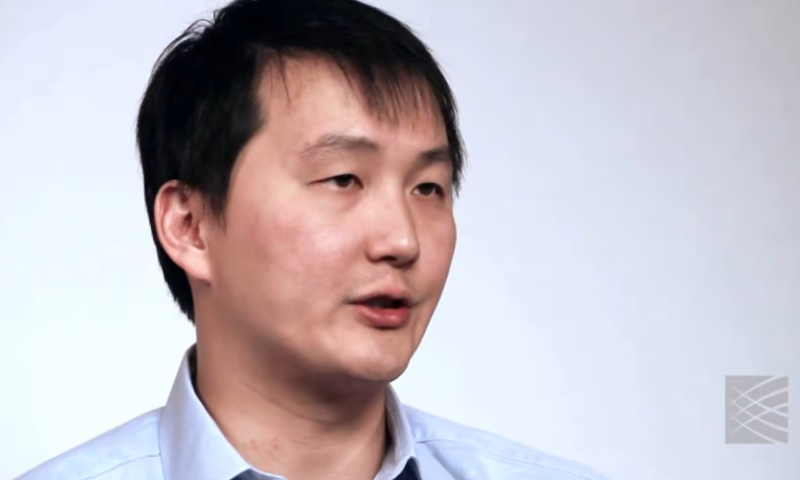Senti Bio is perhaps best known for logic-gated gene circuits to control the therapeutic activity of cell and gene therapies. But the California biotech now has early data showing its platform has more tricks up its sleeve.
Developing CAR-NK cells for solid tumors, Senti created a novel calibrated release technology to fine-tune the signaling of cytokines to further boost the function of cell therapy in solid tumors. CAR-NK cells armed with interleukin-15 (IL-15) based on the new gene circuit showed potent antitumor activity and persistence in mice as well as activation of other immune cells, according to data presented at the American Association for Cancer Research.
Senti is already applying the calibrated release technology to several pipeline products including SENTI-301 and SENTI-401, designed for liver cancer and colorectal cancer, respectively.
Solid tumors have proven difficult for cell therapies to target because the tumors lack unique antigens that can help immune cells differentiate them from healthy tissues. And the tumor microenvironment can be hostile for immune cells to survive.
Senti is solving the cancer identification problem with logic-gated gene circuits, which can recognize more than one antigen and then activate or block the therapy accordingly. To improve the CAR-NK cells’ potency, the company is turning to interleukins, adopting a common approach though slightly differently than other cell therapy developers, Senti Bio CEO Tim Lu, M.D., Ph.D., said in an interview with Fierce Biotech Research.
“There are two aspects we’re trying to optimize,” Lu said, “one aspect is how do we make the NK cells themselves as potent as possible, and the second is how do we use the NK cells to stimulate the surrounding tumor microenvironment?”
Once produced, a cytokine is tethered to the cell membrane. Senti added a cleavable linker, which can be cut by a cell surface protease at a pace of Senti’s design, thereby allowing for a controlled release of the cytokine into the surrounding tumor site. That way, the therapy can get optimal stimulation of the CAR-NK cells themselves by the membrane-bound cytokines as well as engagement with the local immune community, Lu explained.
Senti picked IL-15 because it’s a well-established booster for NK cells, Lu said. In lab dishes, CAR-NK cells armed with the novel IL-15, or crIL-15, showed improved expansion and survival compared with those carrying normal IL-15.
In a serial killing assay, where the immune cells were periodically rechallenged with new cancer cells over 196 hours, the crIL-15 CAR-NK cells were able to continue to kill cancer cells at all three time points, whereas CAR-NK cells with typical IL-15 and unengineered NK cells only controlled tumor cells at the initial point.
The crIL-15 CAR-NK cells also showed increased persistence and better anti-tumor activity in mice, with tumor shrinkage in 62% of the animals, whereas CAR-NK cells alone failed to shrink tumors.
Separately, Senti also showed that the combination of IL-15 and IL-21 led to a synergistic effect, as the multi-armed NK cells could live longer in petri dishes than those armed with IL-15 alone. CAR-NK cells armed with both IL-15 and IL-21 cleared over 90% of tumor cells in lab dishes, whereas IL-15 alone killed about 70%.
Lu noted that IL-21 is just the first cytokine Senti is presenting alongside IL-15. The company is running systematic screens to see which cytokines could work with IL-15 in different settings. For SENTI-301, for instance, Senti is pairing IL-15 with IL-12.
“We want to use the NK cells not just directly like a soldier to kill the tumor cells but also as a factory to produce other cytokines,” Lu said. “We’re typically looking at multiple cytokines together because we think that has the best chance of amplifying the effect.”
Senti is currently in the process of a SPAC merger with Dynamics Special Purpose, which has former Illumina executive Mostafa Ronaghi, Ph.D., as CEO and Robert Langer as chief scientific adviser. The deal values Senti at $601 million.
The 2018 Fierce Biotech Fierce 15 winner aims to file first-in-human clinical trial applications for its two lead programs, SENTI-202 for acute myeloid leukemia and SENTI-301, next year. The designs of those two programs are almost complete, Lu said, and the company is moving into the manufacturing process.
Besides being able to adjust the release of cytokines, Senti has devised another gene circuit, called the “regulator dial,” to control how much of the cytokines are produced, Lu said. It involves an FDA-approved oral small molecule drug to trigger the production.
“We’re not just a logic gate company, we’re not just a cytokine company,” Lu said. “The key thing that we’ve developed is how do we put these genes together and how do we get them with each other properly … and don’t interfere with each other. That’s the future.”

